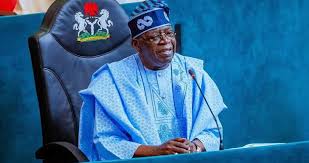President Bola Ahmed Tinubu has cautioned Nigerians against expecting a quick resolution to the country’s electricity challenges, citing the aging state of the national grid and decades-old power infrastructure as key obstacles.
Tinubu made the remarks on Wednesday during the visit of German President Frank-Walter Steinmeier to Nigeria, where bilateral discussions on energy and industrial development took center stage.
Acknowledging the urgency of the electricity crisis, Tinubu emphasized ongoing reforms to decentralize power generation and distribution across the country.
He revealed that German firms, in collaboration with local stakeholders, are exploring renewable energy solutions to enhance rural electrification and boost grid capacity.
“Nigeria, being a nation in a hurry, wants a magical response. But don’t forget, those transmission lines are about 50 to 60 years old,” Tinubu said.
“We are working to improve and reduce the possibility of problems. I’ve signed reforms to decentralize power distribution and generation. States and various subsectors can now generate and distribute their power.”
He highlighted the Siemens Energy partnership as a critical component of these reforms, aimed at overhauling Nigeria’s fragile power infrastructure.
Tinubu also reiterated the government’s commitment to youth training, industrial growth, and harnessing solid mineral resources to attract foreign investment.
Minister of Power, Adebayo Adelabu, who was part of the bilateral talks, disclosed plans to add 150 megawatts to the national grid before January 2025.
The additional capacity, according to Adelabu, will come from the ongoing Presidential Power Initiative (PPI), a collaboration with Siemens Energy to upgrade transmission infrastructure across the country.
Since the project’s launch in December 2023, Adelabu noted significant progress, including the installation and commissioning of 10 power transformers and mobile substations, which have added 750 megawatts to the grid.
“We are completing the pilot phase, with two substations left to be commissioned. By year-end, an additional 150 megawatts will be added,” Adelabu said.
“The next phase involves rehabilitating 14 existing substations and establishing 23 new ones nationwide.”
He added that the grid’s current fragility necessitates a complete overhaul for long-term stability.
“This grid is very old, fragile, and dilapidated. Revamping it is crucial to ensuring stability going forward,” he stated.
Adelabu also emphasized the importance of renewable energy in Nigeria’s transition to net-zero emissions by 2060.
He pointed to Nigeria’s vast solar and wind resources as opportunities for collaboration with Germany to diversify the energy mix.
“Over 30 states in Nigeria have at least 10 hours of daily sunshine. We also have the desert wind in the north and coastal wind in the south. With Germany’s technology and our resources, renewable energy can play a critical role,” Adelabu explained.
To address grid reliability, the Minister proposed an off-grid system that allows states to generate their own power, shielded from disruptions on the national grid.
“When there’s a problem on the national grid, states will have their backup systems embedded within their networks,” he said.
.
Do you want to share a story with us? Do you want to advertise with us? Do you need publicity for a product, service, or event? Contact us on WhatsApp +2348183319097 Email: platformtimes@gmail.com
We are committed to impactful investigative journalism for human interest and social justice. Your donation will help us tell more stories. Kindly donate any amount HERE




